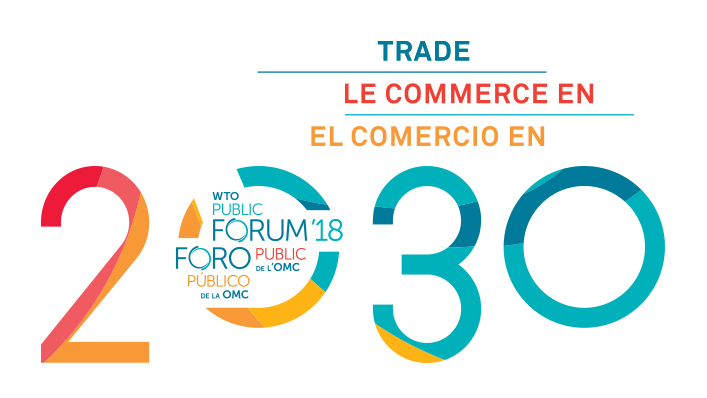The rise of digital: Tech and the changing nature of value added
4 Oct 2018 02:00h
Event report
The event was organised by TechUK and addressed the rise of data flows, and technologies like additive manufacturing (3D printing) and their implications for global trade. The meaning of trade is changing, due to the evolution of cross-border data flows, worth trillions to the world economy, and the expectation of the global additive manufacturing market to grow rapidly through 2030. Developments in this field are challenging the notion of who is adding value, and where the value is added. Moderated by Mr Stuart Harbinson (Senior Consultant, Hume Brophy) the event was featured by a panel discussion.
The first panellist H.E. Andrew Staines (Ambassador and Deputy Permanent Representative, UK Mission to the UN and Other International Organisations, Geneva), talked about the trends of the last two decades. He argued that the expansion of service industries, in addition to the shift from analogue to digital, has created more intangible assets in the economy. Moreover, this shift has been characterised by a geographical shift, from the West to the East. As a result, there is an increase in waves of returns in intangible assets. He further added that latest trends have been affected by the fourth industrial revolution, the increased utilisation of data, and by the evolution of new technologies such as Internet of things (IoT), 3D printing, and others. Focusing on the UK, he argued that innovation is the foundation for competition in a revolutionised world of manufacturing. He concluded that in order to address challenges, rules need to be adapted to new scenarios, tackling issues such as freedom of data flows, and data tariffs.
The second panellist Mr Carlos Halasz (Customs Compliance Officer, Global Trade, HP Inc), gave an overview of the global manufacturing sector, which is becoming increasingly automatised. He explained that China has recently became the largest manufacturing hub in the world, while 15% of the EU’s total added value comes from the manufacturing sector. With this regard, despite the slowing down trend in recent years, manufacturing continues to shift and centralise in specific regions of the globe. Halasz used the example of 3D printing, which was initially used for prototypes in its beginning stages, is being used for mass production since 2015. The technology is becoming more efficient and less expensive, therefore 3D printing has the potential to be as competitive as traditional manufacturing in the future. He concluded by stressing the importance of the sustainability of 3D technologies, which must able to produce goods without creating waste.
The third panellist Ms Karishma Banga (Senior Research Officer, ODI), focused on Africa, the challenges, and opportunities created by new technologies. She argued that the third industrial revolution created a wave of premature de-industrialisation in developing countries. With regards to the use of new technologies for manufacturing in developing countries; she pointed to an important digital divide that persists, for instance in the use of robotics and 3D printing capabilities. The impact of digitalisation in African countries is lower compared to global statistics. In terms of challenges, African countries are facing issues related to, reshoring activities; the limited future for offshoring; new goods and their related data being increasingly linked to pre-manufacturing; and the slow-down of convergence in manufacturing labor productivity. In terms of opportunities, they can benefit from the lower costs of production, trade and co-ordination, allowing participation in global value chains; and improvements in productivity that boost outputs, exports, jobs, and value. Finally, she concluded with a few recommendations to increase African countries’ competitiveness. There is a need to continue to boost traditional manufacturing, while at the same time, it is crucial to start the digitalisation of such manufacturing. In addition to this approach on traditional manufacturing, actions must be taken related to digital manufacturing, such as investments in Internet and digital technologies, and targeted skills development.
The final panellist was Mr Antony Walker (Deputy CEO, techUK) who gave a policy expert insight on the topic. He argued that the WTO agenda still uses the term e-commerce, despite the fact that the fourth industrial revolution has went way beyond that. He stated that discussions are inevitably politicised, and this could be found in the term revolution that implies dramatic changes, as well as winners and losers. Such discussions cover issues of privacy, children safety online, use of public data, artificial intelligence, and employment to cite a few. With this regard, he stated that while considering the potential to open up to new markets around the world, the aforementioned topics and concerns should be considered. Finally, he concluded by saying that there is a need to embrace the change, and that ‘the old model is no longer applicable’.
Related topics
Related event

